Description
ABSTRACT
Rethinking the Taxation of Demurrage Income in Nigeria
Opeyemi Bello*
The classification of demurrage and detention charge earned by shipping companies on the late return of their container by vessel charterers as a non-freight income and its treatment under the provision of the Companies Income Tax Act (CITA) is a major concern to shipping companies. The Federal Inland Revenue Service considers demurrage as an income chargeable under the CITA while shipping companies regard it as part of shipping income earned in respect of inbound operation which should not be taxed, as inbound freight income is not taxable in Nigeria. The OECD Model Tax Convention on Income and on Capital and the U.N. Model Income and Capital Tax Convention support the position of the shipping companies by classifying demurrage as shipping income. The thrust of this paper is to analyse this unsettled issue and suggest a workable solution within the existing local legal framework in the shipping industry. This paper also examines the power and discretion conferred on the FIRS by section 14(3) CITA to determine a fair percentage for computation of assessable profit of shipping companies, and submits that the discretion so conferred on the FIRS is not absolute and should be exercised with regard to the peculiar circumstances of each case.
Keywords: Taxation, Demurrage, Detention Charge.
INTRODUCTION
The nature of international shipping business dictates the need for international shipping companies (‘ISC’) to comply with laws of various jurisdictions where they operate. Taxation, being a statutory matter, is always a major consideration for the ISC. They may be required to pay tax more than once on the same income to different revenue authorities, particularly where there is no double taxation agreement between the concerned jurisdictions. ISC may also have the obligation to pay tax on its global incomes, which may include incomes derived from another jurisdiction, to the revenue authority of its home country, the place where the company was registered, on the principle of residence; and may also be liable to pay tax on the same income to the revenue authority of another jurisdiction because the income is derived from that other jurisdiction. The unique features of international shipping business justify the need for a special tax regime in section 14 of the Companies Income Tax Act (‘CITA’).1
The freight incomes of ISC are classified into inbound and outbound under CITA to provide clarity in the computation of tax liability of ISC. The inbound freight income is the income derived by ISC from carriage of passengers, livestock and mail to Nigeria, while the income derived from carriage of passengers, livestock and mail out of Nigeria is known as outbound freight income. The inbound freight income is taxable in another jurisdiction while the outbound freight income is taxable in Nigeria. While there is a reasonable degree of clarity in the tax treatment of inbound and outbound freight incomes under section 14 of CITA, there are, however, unsettled issues in the treatment of related incomes such as demurrage and detention charge, which are derived by ISC in the course of their business activities.
* LL.M (Lagos), BL, LL.B (Ilorin), ACIS, ACTI, MCIArb (UK). Managing Partner, Knightview Professional Services
- Cap. C21, Laws of the Federation of Nigeria 2004.

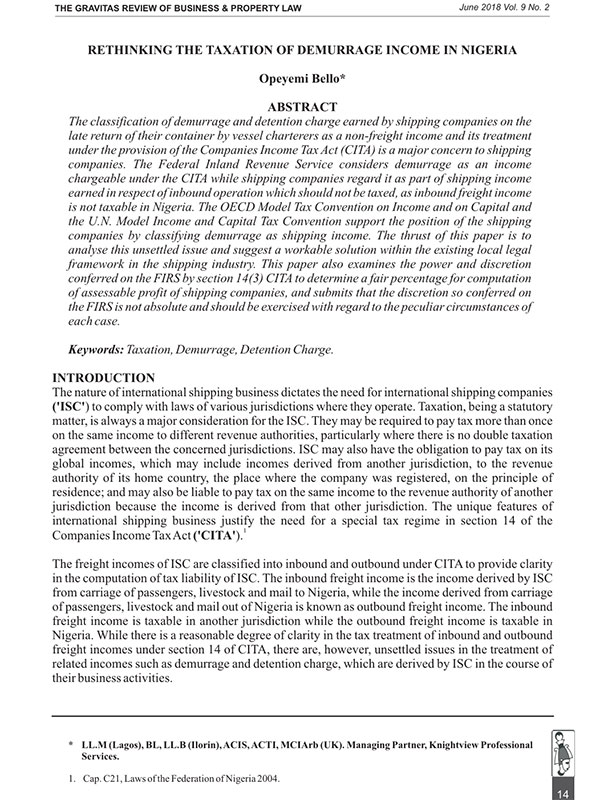
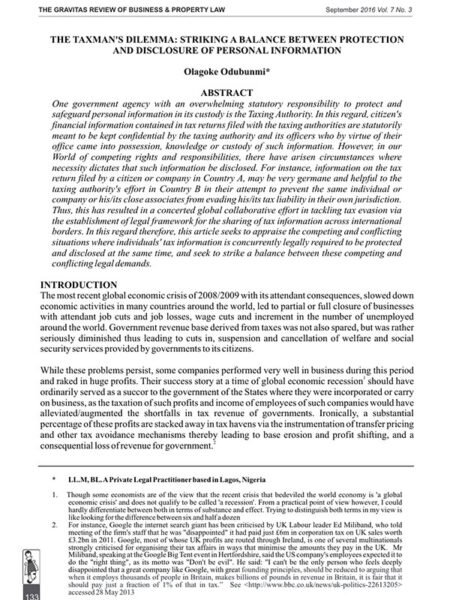
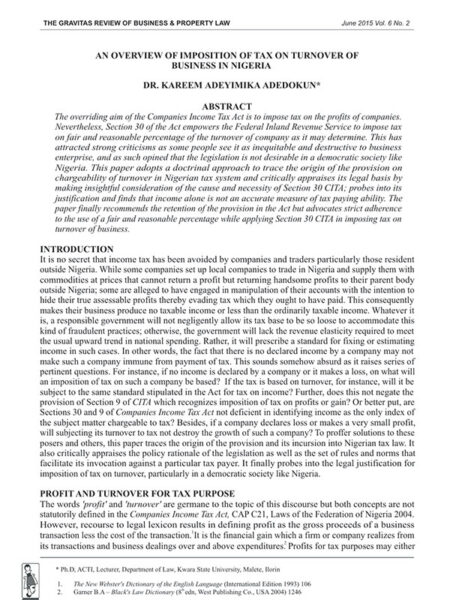
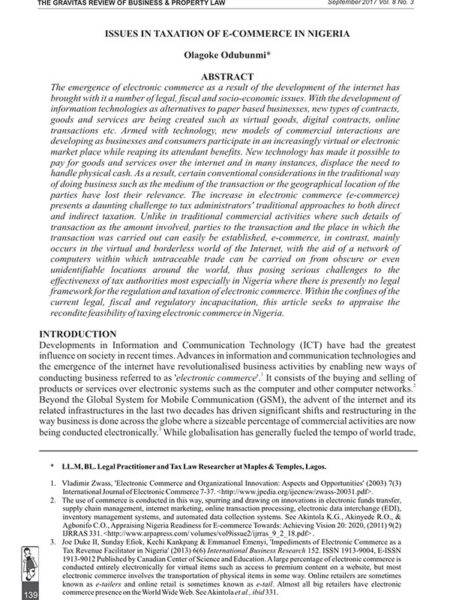
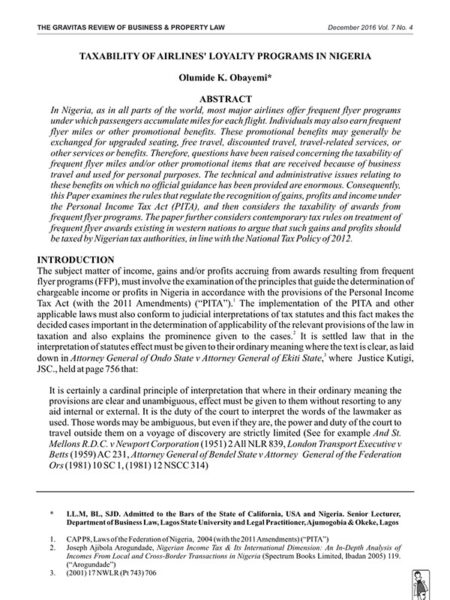


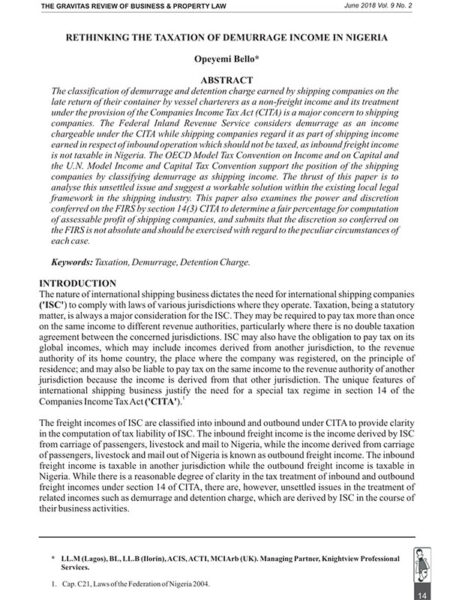
Reviews
There are no reviews yet.